5. 9. 2022
Petr Jákl: The falls are worth those trips to the top
After two years of postponement, this September we will finally witness the
premiere of the most expensive Czech film in history, a magnificent historical
work with the telling title Jan Žižka (entitled Medieval outside of the CR).
Žižka was brought to life by former Olympian Petr Jákl, who refashioned his
experience in judo into a successful career in the field of film production. How
he went from being a professional athlete to a director, how he chooses the
themes of his other projects, and how he worked with the legendary Sir Michael
Caine, he revealed in an exclusive interview with DOCK.
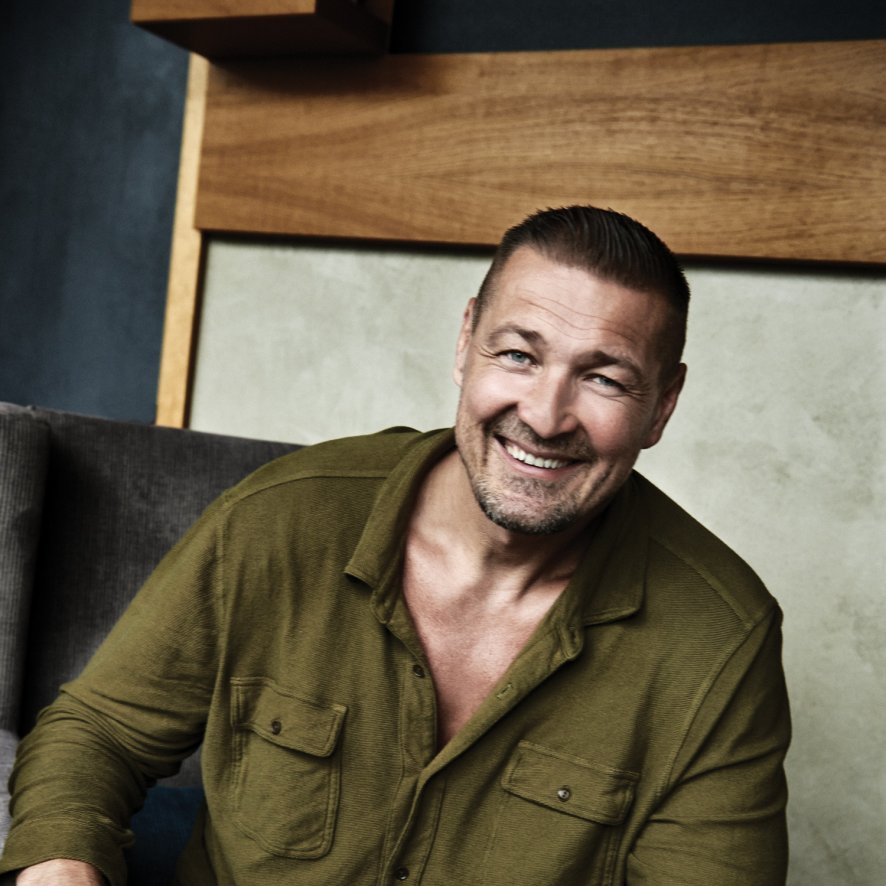
Professional judoist – Olympic Games participant, stuntman, actor, screenwriter, producer and director. In what role did you feel best and most confident in your professional life?
I’ve always felt like a judoist. I’ve been pursuing judo since I was around seven, and it was my whole life until I was 27. But due to herniated discs, I was to quit nine months before the Sydney Olympics – that’s what the doctors told me. But I’d decided it just couldn’t turn out that way. Despite the back pain, I continued to train, only on the mat for instance because I couldn’t stand much, and basically by force of will I somehow overcame it all. It was then that I understood that not only in sports, but also in life, the most important thing is the psyche. This eventually got me to the Olympics because I didn’t have much training, but I knew that if I beat everyone within a minute before the pain exceeded a certain limit, I would succeed. Ultimately, I enjoyed it tremendously in Sydney, those were the happiest days of my life until then, even though I knew it was actually my farewell to judo. And so ended my first life.
I never did stunt work as a profession, it was something of a hobby to judo, though it was paid work and I sometimes filmed for several months in a row. I enjoyed acting, especially all the stuff around it, the parties, the people... But I feel good especially in production, I can put money, actors, crew and other things together to keep everyone happy. Today I feel most like a director, and I especially like the creative side. I’m even writing some scripts for Americans now that I won’t even direct, but I get unbelievable enjoyment out of the work.
In my second life, the movie life, I enjoy everything as much as I did in the first one. I started at the age of 27, so I’m actually 21 years old in film years by now, which I think is the best age. In the past, my friends and I would often play the card game “Eye”, and that’s where the number 21 appeared the most. I remember that from my 21st birthday, we began to subtract the years from our age, so at 25, we celebrated “after our” seventeenth birthday. Just a silly thing, but it’s quite a coincidence that I’m 21 again now, albeit in a slightly different way.
You excel in everything you do. Are the 20 years of professional sports mainly what’s attributable to your purposefulness and resilience?
I’m actually not extremely skilled at anything, I have to work a lot to be good at things. If I know something would take me too much time to learn, I’ll leave it to others. After almost 30 years in film, I already know where I can help, what I can do. I’m actually best at the artistic and production side of things. Even in sports, everyone excels in something different – some short tracks, some long ones...
I know of one occasion when I did well without having to do anything to achieve it. My friends provoked and challenged me into signing up for the national arm-wrestling championships in 1995. I thought it was nonsense, after all, I had never really trained for it, we only arm wrestled each other in friendly matches, and I trained and strengthened only within judo. But I let myself be persuaded, I went to the championships and ended up winning. Although I could not move my arm for more than a month having strained and stretched everything in it in the stress of competition, with the amazing atmosphere and full hall of fans motivating me, it turned out to be a great experience.
For all the things I can do today, I have had to learn and devote a lot of effort, time and willpower. Of course, there must also be some talent, it is probably not possible without it. Some have more though, so others have to make up for it through hard work. But I always do things my way and try to do them differently as I see fit. This can lead me astray, but other times I reach my goal much earlier.
I mainly follow my instinct in everything I do – in life, in sports, in film... When something comes up, I either like it and my instinct tells me yes, or the answer’s no. Of course I’ve been burned a lot, but it suits me that I don’t let myself be influenced by the people around me, I do things according to how it affects me. Sometimes it’s hard, but ultimately, it’s important that I’m happy with myself, not that someone else is happy with me.
And besides talent and hard work, is there luck? Do you see yourself as a child of fortune?
Definitely, I have it that way even when I make a rare trip to a casino. (laughs) I tell myself that I have a system, but in the end I still make decisions instinctively. But you can’t play on luck for too long, it tends to run out. At any rate, every coin has two sides, and there are areas in which I am unfortunate. But in life, it’s always about the same thing – until you fall on your face, you don’t appreciate what you have. In almost all directions, I’ve reached down deep, and the bounce back from the proverbial bottom really charges a person.
For example, recently I had an operation and then I really enjoyed it when I started walking again, and everything seemed wonderful to me. Or when we came back from Ukraine after shooting a film, I wore a permanent smile for about two weeks, because compared to the depression, the dirt, the bad mood there, it was just beautiful here.
Sometimes it’s really good to find out that things can easily get worse. I can’t say I’d like to fall face down, but when something negative happens to me, I always try to take the best out of it. At first there may even be tears, emotions, but right at that moment I tell myself no way, not like this, and that I have to break through to the other side. How many times the outcome of the situation is even better than I could have imagined before. And if not, I know I was at least trying to save it. I think the falls are worth those trips to the top.
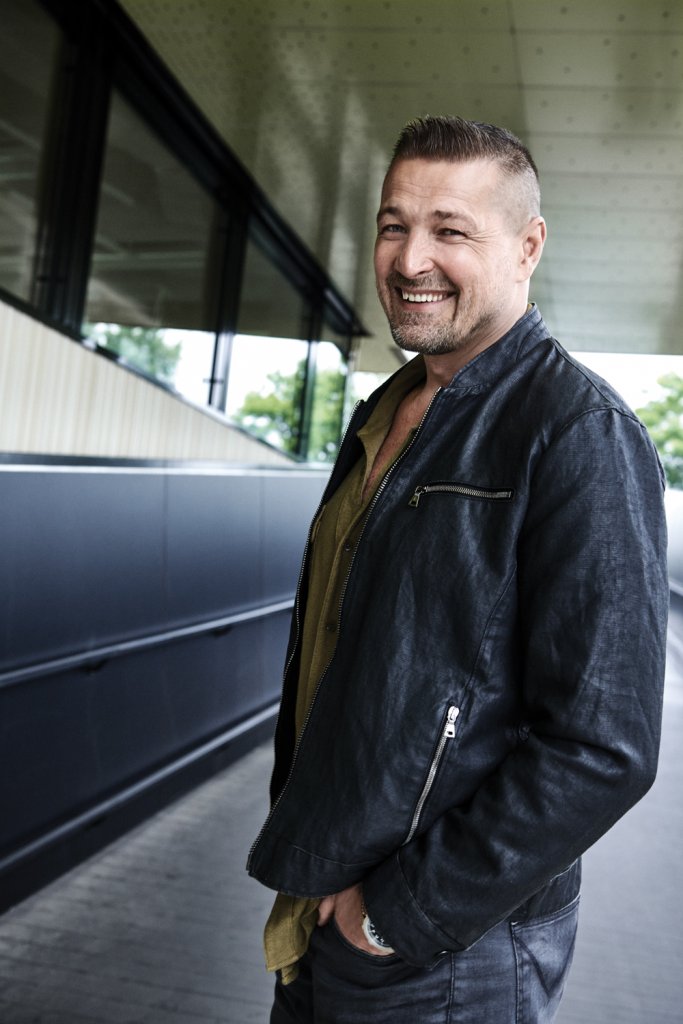
You followed in the footsteps of your father Petr Jákl. Is it more coincidence or inspiration?
I’ve always admired and respected my dad, he taught me everything. By the way, today he is receiving the fair play award from the Olympic Committee. And because I’m the type who learns by watching what someone does and how they behave, rather than listening to precepts, I naturally started to focus on what he did – whether it was sports, stunts, film production or writing... I’m glad I came to my current craft like this and not through school, I think it would have limited me in a lot of things. Of course, I had to study a lot of information anyway to know how to even get started, but I’m not bound by learned rules and I can do things differently.
Probably the most important link between my dad and me was judo. As soon as I gave it a shot I started having incredible fun. I have embraced the philosophy of this sport and it accompanies me always and everywhere. You could say that judo underlies everything I have in my life, and I share that feeling with my dad.
We finally compelled him to write a biography because his life is incredible. The first Czech Olympic representative in judo, co-founder of stunt performance in Bohemia, Václav Havel’s security guard during the Velvet Revolution, thousands of other things and stories... My sister and I love them, so we wanted him to write them for others. It’s going to be called In the Kimono to the Grave – he’s an incorrigible jokester. He makes fun of everything, but it’s really about the fact that judo has accompanied us both every step of the way. It taught us discipline and we took from it a motto for life: if it’s not about life, it’s about shit. And that’s what I believe.
And now on to film. Your directorial debut relates back to the movie Kajínek from 2010. This is still a controversial topic, were you not afraid that you would become a target of criticism because of it? After all, you didn’t know what was coming if he would be released, and so on.
I was absolutely certain the criticism would come my way. First, that the judoist and stuntman suddenly wanted to direct a movie. Second, I knew I had to make up my mind about the subject in advance and stick to it. I had to study everything I could about the case and then decide which way to go with the film – either guilty or innocent. But ultimately it turned out that it would not even concern this particular decision. It became more important for me to inform people what was happening in our legal system. The connection between the police, the courts and the underworld is undoubtedly there, and when one becomes interested in it, one discovers terrible things.
I have absolutely no confidence in the Czech judiciary, and I am convinced that even an innocent person can wind up behind bars. This certainly does not mean that Kajínek was completely innocent and was just picked up by the law. To this day, I would not be able to answer clearly with a pure heart the question of whether or not he is guilty, even though the prevailing feeling is that he did not commit the crime for which he was imprisoned.
In the end, I was most pleased when, after the film’s release, I was occasionally thanked – even from the ranks of the police – for the fact that it can now finally be talked about publicly. People became more interested, discussions were spawned, and other cases such as Berdych’s gang were gradually revealed.
After the film Kajínek, you said in an interview that it was not relevant for you how the film was evaluated by critics, but by the public audience. Is it still true that you like to shoot for the masses, and do you want to achieve success with the audience?
Absolutely. I like movies that viewers want to watch several times, that entertain them or teach them something. Quite often lately I come across films that are almost unwatchable, and I feel that they were made just to be able to compete for an art prize. I just don’t enjoy watching someone sit for an hour and be silent and look for some “tension”. I understand that it’s a special discipline like running a short track, but I don’t want to do that. I enjoy making films with a message, but if someone doesn’t find it there, let them at least say that they had fun, that it was nice or interesting. A critic might say I’m doing it commercially, but I don’t think it’s that simple. After all, even a quality film can become a commercial success – and that’s how it used to be, for example, The Godfather or The Magnificent Seven were blockbusters. Only recently have movies begun to be made that no one goes to, and it is supposed to be “art”. A great combination of these two worlds are films by Tarantino, Spielberg or Scorsese, which I admire very much, and I look forward to each of their works.
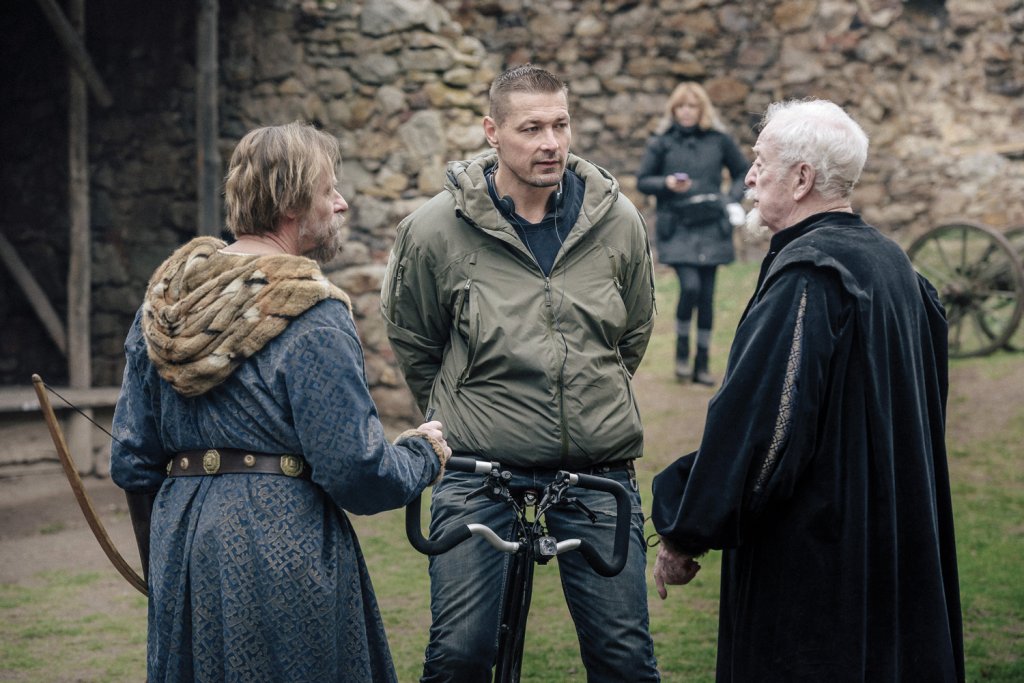
The plot of your subsequent film Ghoul was inspired by the mass famine in Ukraine. Back then, you reached for American actors, and it was shot in English. What happened between Kajínek and Ghoul that made you shift so incredibly?
During the filming of Kajínek, I confirmed my enjoyment of directing and I wanted to continue with it. But in order to make films for the whole world, I first had to improve in English to work with an international crew, and I also had to find a topic that I could finance, shoot and present myself.
I have always loved the Blair Witch Project or ghost stories in general. I am also fascinated by the stories of mass murderers and similar documentaries, so I began to search in this direction and came across one Andrei Chikatilo. The more I learned about him, the more I interested I became. It’s incredible what people are capable of and how they think. I wanted to portray the story in an unconventional way and at the same time in a horror-like way – I always wanted to make a horror film, so I went for it.
Do the current events in Ukraine affect you all the more because you are bound to it by memories and something more than most people here in our country?
I guess so. In the first days of the bombing of Kiev, our editor and I agreed that we would offer to the actresses who played in Ghoul that we would get them over to us and take care of them. We had to persuade them for a week, but ultimately they came, I employed them, and they work here. For me, it’s about the fact that I’ve always hated injustice, and when the stronger allows himself to be the weaker. I got it from my like-minded father, and because of this, he volunteered to be Václav Havel’s security guard during the Velvet Revolution. There was no such thing as bodyguards at that time, so he agreed with other judoists and went to help as they only knew how. I’ve gotten into trouble a few times because of this protective approach, but that’s just how I am. And I try to transpose that stance to the things I’m filming.
We met today mainly to talk about the film Jan Žižka, whose release has been on hold for over two years due to the Covid-19 pandemic and will finally appear in cinemas this September. How do you feel about this “D-Day” finally arriving?
It’s amazing, I’ve been waiting for it for so long and I’m really looking forward to it. This September marks four years since we finished filming, and I want to show it to people because it’s been done for ever so long. I simply can’t wait.
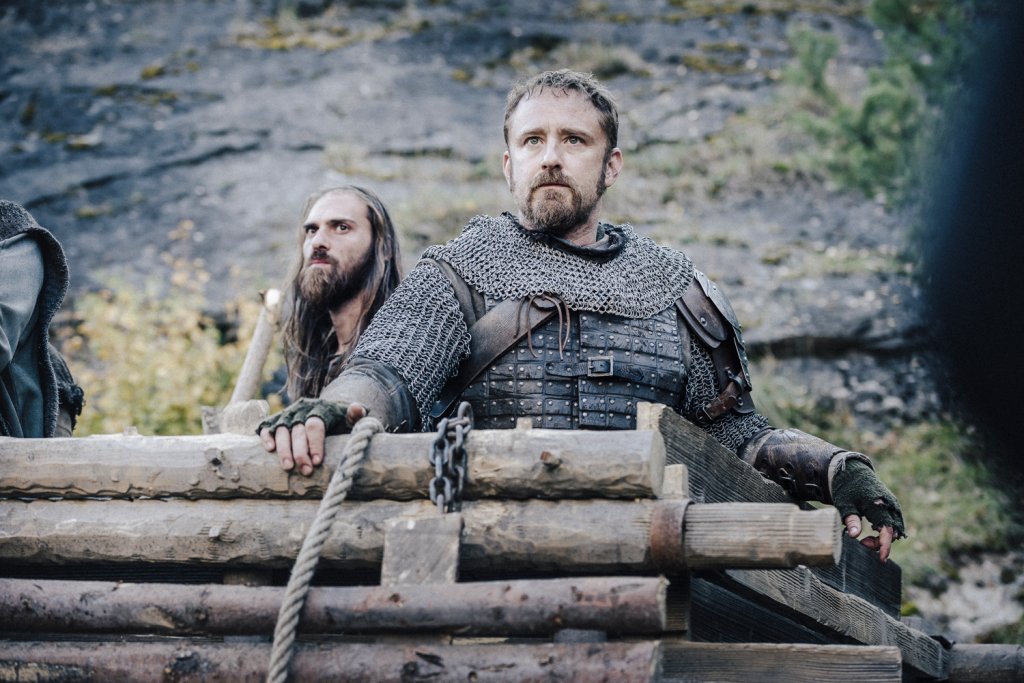
By all accounts, the making of the film was almost more thrilling than the story itself. What preceded the first clapperboard snap? Is it true that you see the time before filming as the time until the agreement with Sir Michael Caine and the time after?
Exactly! The first milestone was the deal with Ben Foster, who was the first to say, “Count me in.” He’s very respected in America, so then I dared to reach out to Michael Caine. And when he agreed, it was definitive. Getting people together was the hardest part, then it almost went by itself.
What is Michael Caine like? Does he have any quirks, for better or for worse? Can we even divulge anything about such a legend?
Michael Caine isn’t quirky at all, he is absolutely incredible. They were all amazing, but I truly became friends with him, we would even meet up after filming, and in fact I produced another movie with him, Bestsellers. My wife and I visited him in Canada where it was filmed. His wife Shakira is fantastic too, it was just great. Michael is totally fine, whatever was needed, he did, no problems, unreal.
Would you mention any other personalities with whom you have worked nicely?
I was pleased for instance that Karel Roden, Jan Budař and Ondra Vetchý accepted roles... The film was shot in English, and was also physically demanding, but they managed it perfectly.
Especially the quality of the cast makes Jan Žižka the most expensive Czech production in history. How do you find sponsors and partners for such a project?
AAt the beginning, you need to say what kind of impact the film can have and what your expectations are of it. A budget can be set accordingly so that you can recoup the investment. And then you have to figure out which sponsors and partners your film could help in some way and how, and create a plan that can be implemented. You have to find the line regarding why your product is suitable for which business, at what stage and so on. Of course, it was complicated to finance such a huge project, but in retrospect, I can see that it was not really such a problem to attract investors who were perhaps interested in the topic. But I tend to forget the negative things, and then I remember everything in a good way and how cool it actually was. (laughs)
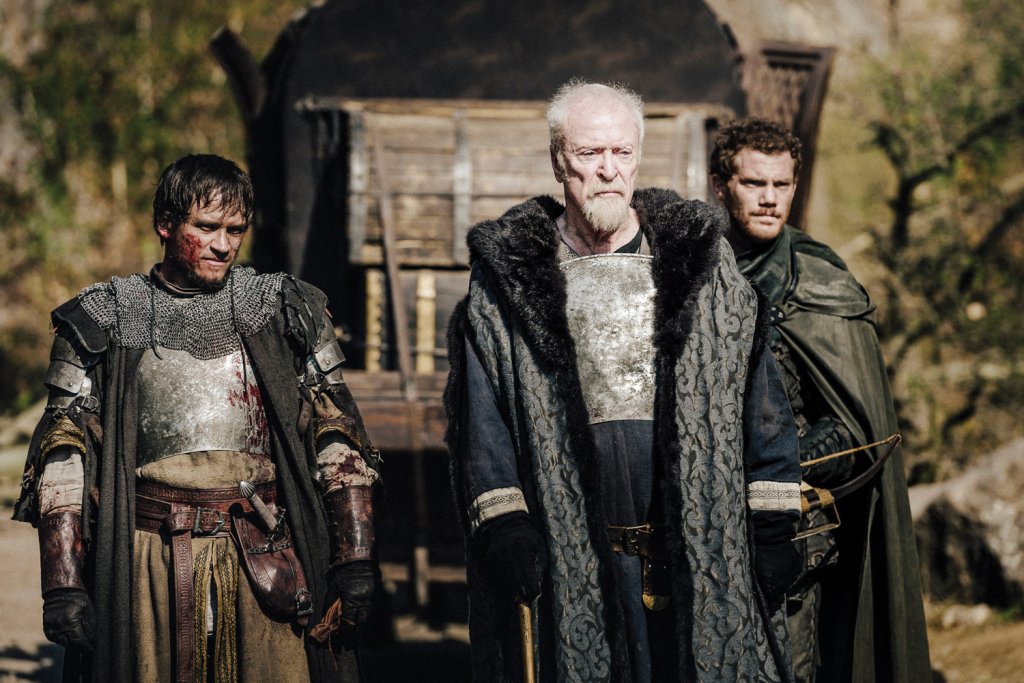
CRESTYL is one of the proud partners of the film. How did you approach Omar Koleilat? After all, he’s not a native Czech who would know the heroic story of Jan Žižka from elementary school.
Omar and I knew each other through sports, and I was the first to buy an apartment from him when he started building here. He eventually moved in across from me and we became friends. He also went to see Kajínek and liked it, so we started talking about what else I was preparing. He listened to me and believed that it would be successful again, and the agreement was born. I look for partners more according to feeling, I have to work well with them. After CRESTYL, I didn’t need anyone else for a long time, until later I took others on.
How much did Žižka end up costing?
A total of 450 million crowns.
We have already touched on the topic of national pride, the personality of Jan Žižka is certainly perceived positively by Czechs – by the way, he placed 5th in the ranking of the greatest Czechs over. In our neighboring countries, he is seen more as a controversial figure. Why do you think foreign audiences will come to the cinema? Because of the story, the actors, the set...?
I have the impression that the surrounding states perceive medieval Bohemia somewhat inconsistently, at least as far as the Hussite Wars are concerned. But in Poland, for example, the distributor liked the film very much precisely because it does not concern the Hussite Wars, but rather tells the story of a future undefeated commander, about why he eventually became who he was, what shaped him.
There is a lot of speculation about the historical accuracy of the film. Some historical stories, such as Braveheart, were heavily modified by the creators and have only the framework of a true story in them. How is it in Žižka?
Viewers will see what the Middle Ages were like, how life was at the beginning of the 15th century, why certain events happened... We used almost all the information that has been preserved from that time to get as close as possible to historical accuracy, but of course we had to complete the story a bit for film, especially on a personal level, in order for the work to succeed with the modern moviegoer, who is expecting a full-fledged two-hour film experience. It is not a documentary film or a biography of Jan Žižka, but I believe the audience will recognize our maximum efforts to stick to history as close as possible.
Abroad, the film is not called Jan Žižka, but Medieval. How did you perceive the change?
With the Czech name, it was clear that it was unsuitable for foreign countries: no one knows his name, and no one would be able to pronounce it. I had been searching for a replacement for a very long time, I had A Warrior of God on my desk, but it still wasn’t “it”. Then I arrived at the name Medieval – that’s how one movie was supposed to be called but they never ended up making it – it sounds good and simple, and it caught on right away. I hesitated for a while, but eventually it clicked somewhere, I accepted it as my own and that was it.
I can’t help but ask what your next goal is, what’s in your professional cross hairs right now? The movie has been finished for a long time, you must surely be working on other projects.
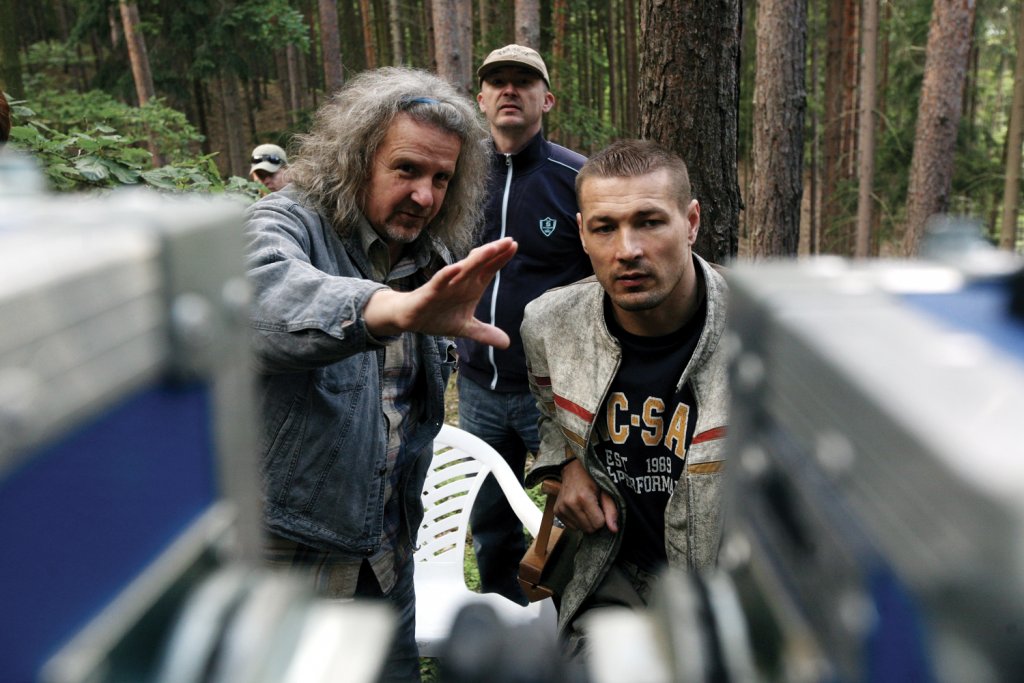
In the last two years, I’ve produced nine American films, with such stars as Samuel L. Jackson, Pierce Brosnan, Robert De Niro, Al Pacino, and John Malkovich. After Žižka, the Americans started believing in me – I showed them that I could make a major motion picture. Now I’m working on one more movie with Morgan Freeman and a few others are nearing the shooting stage. I develop a lot of things myself, from the theme and the script - now, for example, George Clooney is writing one for me, and we will produce a film with Bob Dylan. With stars of this magnitude, the whole thing becomes easier, so I try to entice them for most projects. Of course, this is the hardest part, but then the film has much better odds of success. The budgets are similar to those of Žižka, however, the fact that there are multiple projects at the same time makes it all more difficult to manage. But I have gradually created this path and now I am mainly devoted to producing. I’m in charge of getting the money and the creative part – the script and editing. I don’t like the filming itself. It is tedious, often you just sit around and wait, and you are meanwhile stressed about time... I try to leave it to others. As a producer, I oversee everything, but I have colleagues who can handle the daily hustle and bustle for me.
And what is the most interesting part of your work for you personally?
I’m most interested in the creative business. I’ve even started a virtual film and video game studio, R. U. Robot Studios. That’s where we make video games for PlayStation, Xbox, PC and mobile phones. At the same time, we are working on three films by Stan Lee and many others, everything is running as it should, and I am truly happy about it.
You’re a former stuntman, I assume you need adrenaline to live. Where do you go to find it, where you relax according to your taste?
It’s true, I miss the adrenaline nowadays. I won’t miss any chance to enjoy it, but I’m only a stuntman in a movie, not in life, so for instance I don’t drive fast or anything. I exercise every morning, ride my bike, work out and watch TV or read scripts. Recently we took the kids to Disneyland, and even just a carousel ride can thrill me, but otherwise I don’t do anything risky like I used to.
We talked about what kind of movies you like, but do you even go to the cinema? Do you find the time?
I just recently realized that I don’t actually have time to go to the movies, and if everyone were like me, we wouldn’t be able to make movies at all! (laughs) Yes, I’ve been trying to find the time to go to the movies lately. I go at least once or twice a month. I like foreign films more, and when I eventually do go, I’m always so enthused that I go for the second and third time… Then I forget for a while, and so on. But I like the cinema a lot, the huge screen can’t be compared to some home screening. I used to take the kids more, but they’re 11 and 14 now, so for the older one, going to the movies with dad isn’t exactly the ideal time spent. (Laughter) But she still does come with us, and we’re catching up with the younger one. I can’t wait to get back to the cinema.
Thanks for the interview.
Find out more at www.petrjakl.cz